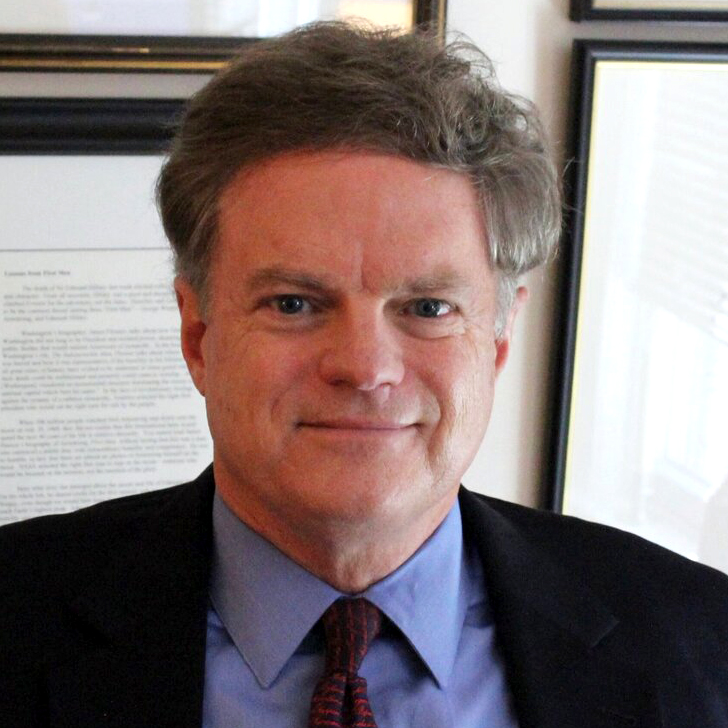
About the concentration in Leadership and Communication
Future entrepreneurs, managers, directors, and visionaries can unlock their leadership potential through a wide-ranging curriculum, lessons from expert practitioners, and strategies for self-knowledge. The concentration in Leadership and Communication provides the practical knowledge and critical thinking skills you need to develop effective, ethical, career-boosting leadership and communication—tailored to your personal strengths and professional interests. In this interdisciplinary degree concentration, you combine analytical and reflective studies with practical introductions to data analysis and global leadership and explore how positive psychology can support your leadership goals in the workplace and beyond.
The concentration in Leadership and Communication was designed in partnership with Civic, a Washington, DC-based organization that partners with institutions in a variety of sectors to develop new policy initiatives.
The concentration in Leadership and Communication prepares you to:
- Identify, develop, and apply distinctive leadership traits and skills
- Develop strategies and skills to persuade specific audiences through verbal, visual, and written communication
- Practice and apply critical thinking skills in the classroom and beyond
- Understand and apply insights from empirical research in economics, psychology, and other social sciences
- Explore competing schools of thought about leadership ethics
- Develop a five-year leadership plan tailored to your professional strengths and goals
- Learn how to use quantitative data in decision-making and problem-solving
- Learn the historical and empirical foundations of positive psychology and the science of well-being
- Explore key research themes (e.g., positive emotions, strengths, engagement, relationships, meaning, and accomplishment) and their relevance in personal and organizational settings
- Apply research in positive psychology by practicing strategies that influence well-being
- Assess your leadership capabilities in addition to those of organizational leaders in domestic or global settings
- Deploy leadership strategies in order to increase organizational effectiveness
- Identify and understand organizational leadership differences across the nonprofit, private, and government sectors
- Examine case studies in global leadership to learn effective strategies in learning and problem-solving across organizational and national borders
Courses
Students in the Bachelor of Applied Arts and Sciences degree choose a concentration to tailor their undergraduate education to specific personal and professional goals.
Students must complete foundational courses for the Bachelor of Applied Arts and Sciences degree. In addition, students in this concentration focus their studies by completing a total of 12 courses (12 c.u.*). Transfer credits cannot be used toward any of the 12 Leadership and Communication concentration courses. Students who pursue this concentration should begin with LEAD 1010: Leadership Theory and Practice as this is the prerequisite for all LEAD classes. It is recommended that LEAD 1040 is the next class; however, LEAD classes can be completed in any order after completing LEAD 1010.
Please note: To be admitted to the Leadership and Communication concentration, you must have:
- Completed two Leadership and Communication courses (LEAD 1010 plus any one of the following LEAD courses: LEAD 1040, LEAD 2020, LEAD 2030, LEAD 3100, LEAD 3200, or LEAD 3300)
- Maintained an average of B or better as your current overall GPA, and received a grade of B+ or better in at least one of the five Leadership Foundations courses below
Leadership Foundations
- LEAD 1010: Leadership Theory, Practice, and Purpose (the prerequisite for all other LEAD courses)
- LEAD 1040: Professional Communication and Personal Development
- LEAD 2020: Leadership Lessons from the Social Sciences
- LEAD 2030: Leadership Lessons from the Humanities
- Plus, one of the following:
Leading Across Sectors
- LEAD 3100: Leadership and Public Administration
- LEAD 3200: Leadership and Business Organization
- LEAD 3300: Leadership and Nonprofit Management
Leading Positively
- APOP 1000: Introduction to Applied Positive Psychology
- APOP 1200: Human Flourishing: Strengths and Resilience
- APOP 2000: Positive Psychology at Work
Global Leadership
*Academic credit is defined by the University of Pennsylvania as a course unit (c.u.). A course unit (c.u.) is a general measure of academic work over a period of time, typically a term (semester or summer). A c.u. (or a fraction of a c.u.) represents different types of academic work across different types of academic programs and is the basic unit of progress toward a degree. One c.u. is usually converted to a four-semester-hour course.
Certificates related to Leadership and Communication
See your advisor to explore earning the following certificates along with your degree. Note that these certificates are not earned automatically upon completing your degree; your advisor will help ensure that your academic plan meets the requirements of your preferred certificate.
The Leadership and Communication team: Penn LPS and Civic
Penn’s Leadership and Communication curriculum represents an ongoing team effort involving distinguished Penn-affiliated scholars and top present and former leaders in government, business, and the nonprofit sector. Both the 5-course Leadership and Communication certificate and the 12-course Leadership and Communication concentration were forged through a collaboration between Penn’s College of Liberal and Professional Studies (LPS) and Civic. As Penn’s home for lifelong learning, LPS offers high school, undergraduate, post-baccalaureate, graduate, summer, and online studies, as well as customized professional training with courses that span across academic fields. Civic works with universities, nonprofits, corporations, foundations, businesses, and governments to develop innovative programs in the fields of education, national service, civic engagement, conservation, public health, and more.
Meet the Leadership and Communication team
John Bridgeland
- Executive Chairman, Office of American Possibilities
- CEO, More Perfect
- Former Director, White House Domestic Policy Council
Chao Guo, PhD
- Professor, School of Social Policy & Practice, University of Pennsylvania
- Faculty Director, Partnership for Innovation, Cross-Sector Collaboration, Leadership, and Organization
- Associate Faculty Director, Fox Leadership International
Ferdous Jahan, PhD
- Senior Social Development Specialist, World Bank
- Senior Affiliate, Partnership for Innovation, Cross-Sector Collaboration, Leadership, and Organization
Don Kettl, PhD
- Former Dean, School of Public Policy, University of Maryland
- Professor Emeritus, University of Texas at Austin
- Senior Affiliate, Partnership for Innovation, Cross-Sector Collaboration, Leadership, and Organization
Marjorie Margolies
- Founder and President, Women’s Campaign International
- Senior Affiliate, Partnership for Innovation, Cross-Sector Collaboration, Leadership, and Organization
James O. Pawelski, PhD
- Faculty Director, Penn LPS Online Certificate in Applied Positive Psychology
- Professor of Practice and Director of Education, Positive Psychology Center
Charlotte Ren, PhD
- Robert A. Fox Leadership International Faculty Director and Professor of Practice in Strategy and Innovation
- Faculty Director for Research, Curricular, and Civic Initiatives, Partnership for Innovation, Cross-Sector Collaboration, Leadership, and Organization
- Senior Fellow, Mack Institute for Innovation Management, Wharton School
Student feedback related to Leadership and Communication
- In general, I have seen areas that I can improve upon that I didn’t think were that important before, but now realize are integral to being a strong leader.
- I have truly gained valuable assets through the duration of this course.
- This course has motivated me to reach beyond my perceived limitations and embrace my mission to influence the lives of patients.
- This course not only helps me in learning the new content and then applying it to my professional job but also helps me in parenting my children in their different seasons in life, including how to lead and how to follow as I constantly share what I have learned with them.
- As I near the end of this course, I think I might be something of a leader. That is probably the biggest change to my thought processes.
Professional outcomes related to Leadership and Communication
Leadership and communication skills are vital to succeeding, thriving, and advancing in any career. This concentration is designed to provide you with a thoughtful framework to deploy your leadership abilities while gaining valuable skills with broad professional applications in a range of fields.
- Increase your effectiveness as a leader
- Customize your approach to professional development
- Practice strategies for impactful communication
- Learn how data may be applied to decision-making in professional contexts












